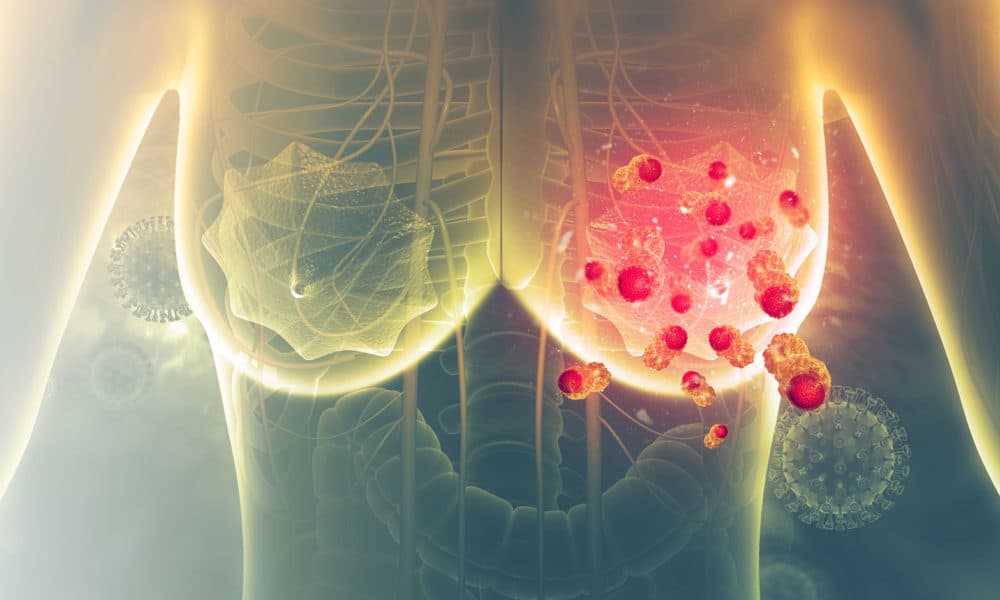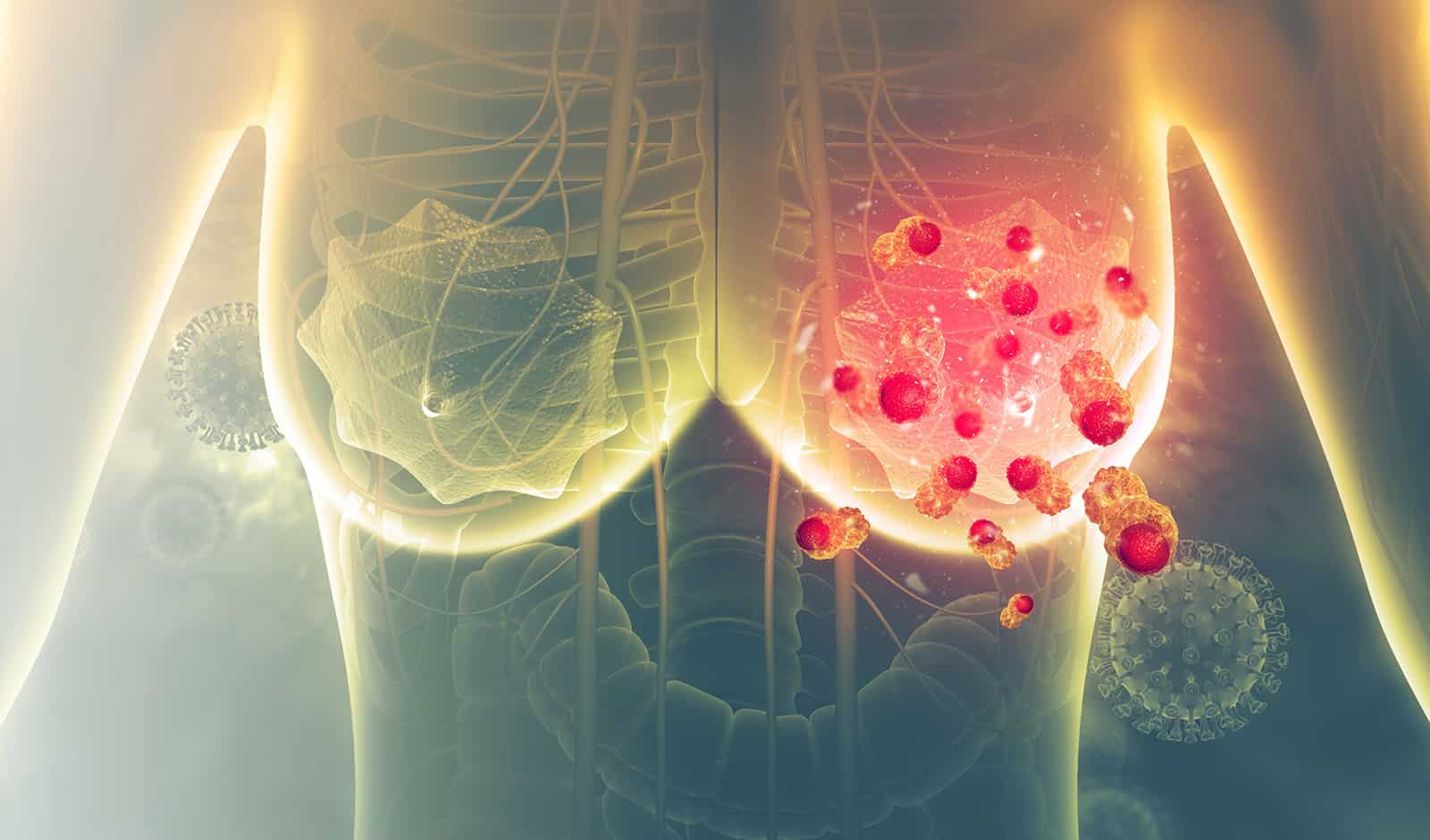

According to the statistics of the World cancer research fund, breast oncology is the most common cancer in women and the second most common malignancy overall. Germany takes the 20th place in the breast cancer world rates due to risk factor awareness and prevention measures.
According to the statistics of the World cancer research fund, breast oncology is the most common cancer in women and the second most common malignancy overall. Germany takes the 20th place in the breast cancer world rates due to risk factor awareness and prevention measures. Those women who are diagnosed with the disease have access to minimally invasive and plastic surgery, novel targeted medications and immunomodulating agents. Thus, 5-year relative survival reaches 98% for women with localized tumors and 80% for women with locally or regionally advanced tumors.
Causes and risk factors
Most of the breast cancer causes and risk factors are non-modifiable. This means that we cannot improve them but can take into consideration and be aware:
- Being a female.
- Early beginning of the period.
- Menopause development at an older age.
- Having genetic mutations associated with mammary gland cancer risk.
- Family history of the mammary gland tumors.
Other risk factors are modifiable, which means that we may avoid and reduce risks of the disease development:
- Excessive body mass or obesity.
- Alcohol consumption.
- Exposure to the irradiation during examination or chest organs treatment.
- Taking exogenous estrogen and progestin for 5 and more years in the form of birth control pills or postmenopausal hormone therapy.
- Presence of the untreated precancerous mammary gland conditions, e.g. atypical hyperplasia or carcinoma in situ.
Symptoms and clinical manifestations
Breast cancer symptoms may be noticed by a woman herself. The following changes should increase clinical suspicion:
- Changes in shape or size of the mammary gland, especially in two breasts comparison.
- Inverting or retraction of the nipple.
- Discharge of abnormal fluid or blood from the nipple.
- Dimpling, pitting or redness of the skin over the breast, “orange skin” presence.
- Feeling pain or unpleasant sensations in breasts or armpits.
- Revealing newly onset lump in the mammary gland.
- Revealing newly onset thickening in the mammary gland.
Next step after such signs revealing is visiting your general practitioner, gynecologist or mammologist. It should be noted that symptoms may also be indicative of inflammation or other benign disorders as they are non-specific.
Diagnostics and specification of the tumor type
In the specialized clinics diagnostics combines physical, laboratory and instrumental examination. Starting from the clinical breast examination, German doctors proceed to:
- Mammography (screen-film, digital or 3D – digital breast tomosynthesis). This is a kind of the X-ray examination with low radiation dose.
- Breast ultrasound is a suitable alternative to mammography in women with mammographically dense breasts. It uses ultrasound instead of ionizing radiation which gives diverse image.
- Breast MRI applies magnetic fields for the picture creation, so it gives precise and detailed images of breast itself and surrounding organs. It should be noted that high precision of MRI is connected with risk of false-positive results and overdiagnosis.
- Biopsy (fine-needle aspiration, core or open excisional) allows histological testing of the tumor sample. In addition, it determines HER2-positive and HER2-negative tumor types, as well as ER-positive and PR-positive neoplasms.
Conventional treatment protocols
According to the international protocols in the relevant sphere, treatment options that are applied at different disease stages include:
Surgical treatment which is partial (lumpectomy, quadrantectomy, segmental resection) and complete removal of the mammary gland. Organ preserving interventions have better esthetic result but fullness of the tumor removal is always the priority. However, plastic surgery will solve the problem in any case.
Radiation therapy is performed few days or weeks before the surgical intervention or after it. In metastatic stage 4 cancer it can be used instead of surgery.
Chemotherapy is primarily administered for the prevention of metastasizing.
Hormonal therapy with gonadotropin-releasing hormone agonists reduces influence of estrogens on the neoplasm. Aromatase inhibitors are used for this purpose as well. These prevent tumor from growing or metastasizing.
Therapeutic approaches may be used in combination, e.g. radiation therapy may precede surgery or hormonal therapy may consolidate surgery results.
Innovative treatment
Novel schemes that are already approved for clinical use in Germany include more sparing and targeted medications:
- Targeted therapy with PARP inhibitors has demonstrated effectiveness in patients with HER2-positive tumors and BRCA genes mutations.
- Targeted therapy with angiogenesis inhibitors blocks formation and growth of the tumor vessels. Without the sufficient amount of nutrients tumor reduces.
- Improved chemotherapy for triple negative breast cancer with carboplatin.
- Immunotherapy with checkpoint inhibitors (e.g. atezolizumab) is also effective in advanced triple-negative tumors. Atezolizumab medications are administered in combination with chemotherapy (i.e. nab-paclitaxel) in this case.
Many of these medications are not approved in countries with less developed medical systems yet.
Choosing hospital and planning therapy abroad
Breast cancer treatment in Germany attracts German residents and international patients as well. For those who come from abroad it will be more convenient to use services of Booking Health – the certified medical tourism provider that helps in:
- Choosing the right hospital for breast cancer treatment in Germany.
- Preparing medical program in advance, including diagnostic and therapeutic interventions.
- Providing favorable cost of treatment in Germany, saving up to 50% due to excluding additional fees for the foreigners.
- Booking the appointment without long waiting period.
- Additional monitoring of the medical program implementation.
- Help in purchasing and forwarding innovative medicines.
- Communication with German doctors after program completion.
- Control of invoices and final calculation, return of unspent funds.
- Organization of follow-up analyses and examinations.
- Offering travel service of the highest level: booking hotels and tickets, transfer.























